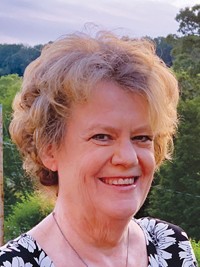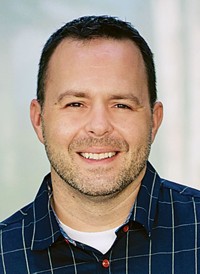Advertisement
Grab your lab coat. Let's get started
Welcome!
Welcome!
Create an account below to get 6 C&EN articles per month, receive newsletters and more - all free.
It seems this is your first time logging in online. Please enter the following information to continue.
As an ACS member you automatically get access to this site. All we need is few more details to create your reading experience.
Not you? Sign in with a different account.
Not you? Sign in with a different account.
ERROR 1
ERROR 1
ERROR 2
ERROR 2
ERROR 2
ERROR 2
ERROR 2
Password and Confirm password must match.
If you have an ACS member number, please enter it here so we can link this account to your membership. (optional)
ERROR 2
ACS values your privacy. By submitting your information, you are gaining access to C&EN and subscribing to our weekly newsletter. We use the information you provide to make your reading experience better, and we will never sell your data to third party members.
ACS News
Richard Miller wins 2024 ACS National Chemical Technician Award
by Nina Notman, special to C&EN
March 28, 2024
| A version of this story appeared in
Volume 102, Issue 10

Richard Miller, a senior lead technician for Eli Lilly and Company, is the recipient of the 2024 National Chemical Technician Award, which honors excellence and professionalism among technicians, operators, analysts, and other technology professionals in applied chemistry.
Miller has been a technician at Lilly for over 40 years and is currently based at Lilly Technology Center–North in Indianapolis. “I work in the peptide development group in the Synthetic Molecule Design and Development division,” Miller says. His responsibilities include supporting the development of flow manufacturing processes for solid- and liquid-phase peptide synthesis. He also trains manufacturing personnel to ensure that equipment developed in his lab is transitioned smoothly into manufacturing settings. While at Lilly, Miller has been a key contributor to 13 journal publications and two patents.
The National Chemical Technician Award was launched in 1989. Today, it is administered by the American Chemical Society’s Committee on Technician Affairs. “National awards are often tailored to cutting-edge innovation scientists and a singular, highest-level scientist representing a given organization or project. The National Chemical Technician Award was designed specifically to recognize team contributors performing the laboratory work associated with those organizations or projects,” says Erin Dotlich, chair of the ACS Committee on Technician Affairs.
Miller received $1,000 and a plaque during a luncheon at ACS Spring 2024 in New Orleans. His written responses below were edited for length and clarity.
From a technician’s perspective, what are the biggest challenges when moving from batch to flow manufacturing?
Batch processing is much like baking a cake. The batch record has a list of ingredients and the order in which they are to be added. It includes instructions on when to heat or cool, when to concentrate, and when to filter and dry the product. Flow chemistry has many moving parts that must be constantly monitored. The batch record still includes the operations and the order they are needed, but the technician needs to have a firm grasp of what the process is trying to accomplish and when a process excursion happens. They need to know how to intervene to get it back to steady-state production.
What is the most memorable project that you have worked on?
When I first started working in process development, the antibiotic cefaclor was Lilly’s biggest-selling drug. I helped to develop a continuous ozonolysis process to manufacture one of the intermediates to replace a low-yielding batch process. The flow process took a year to finalize, increased the step yield significantly, and was the first continuous process scaled up in Lilly pharmaceutical manufacturing.
What are the biggest changes to the recognition of chemical technicians that you have observed over your career?
Technicians have transitioned from just a pair of useful hands to valued members of the development team. When I first started at Lilly, for example, technicians did not travel for company business. Despite us having the most hands-on experience with processes, chemical engineers were always sent to manufacturing sites for technical transfers. I traveled for the first time in 2003, to Huddersfield, England, and then on to Kinsale, Ireland, to hand over two projects that I was working on. Today, technicians are routinely sent to Lilly manufacturing sites and third-party vendors to help with process transfers.
When did you decide to become a scientist?
When I was about 8 years old, I was in the car with my mom and she asked me what I would like to be when I grew up. My response was I wanted to be a scientist. She told me that if I was willing to do the hard work in school she didn’t see why I couldn’t become one.
What do you like best about your job?
I’ve been blessed to always work with great people that are willing to teach others what they know. When people learn how long I have worked at Lilly, they ask me how much longer I plan on staying. I have the best job in the company. I spend about 95% of my time in the lab doing chemistry, so I tell them as long as I can physically and mentally do the job and as long as there are new things to learn and discover, then I’m content to hang around for a little while longer.
What’s in your lab-coat pocket?
Three small crescent wrenches, one pair of channel locks, a chuck key for overhead stirrer, Teflon tubing cutters, a selection of Teflon tube groovers, wire side cut, box cutter, and an assortment of Allen wrenches.
Where do you see yourself in 10 years?
Spending as much time as possible with my wife and three grandchildren, volunteering for projects related to food insecurity and homelessness, traveling to see as many wonders of the world as possible, and reading a pile of books while lounging on a beach by the Gulf of Mexico in Longboat Key, Florida.
Nina Notman is a freelance writer based in Salisbury, England.







Join the conversation
Contact the reporter
Submit a Letter to the Editor for publication
Engage with us on Twitter